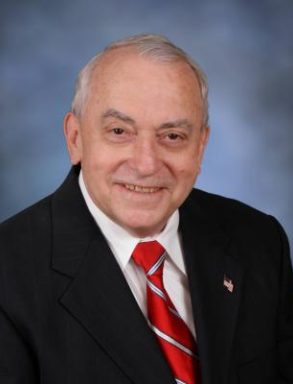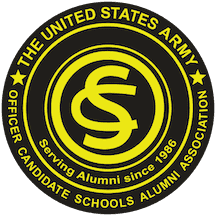Board Of Directors
LTC (Ret.) James E. (Jim) Wright, Jr.
DIRECTOR

Lieutenant Colonel (Ret) Jim Wright enlisted as a private in the Army in 1960. His first operational assignment was the 82 Airborne Division (325 Airborne Battle Group). In 1962, he became the youngest NCO and squad leader in the division. This era included alerts for the Bay of Pigs, James Meredith’s entry into the University of Mississippi, and the Cuban Missile Crisis. The 82nd assignment was followed by Special Forces qualification and assignments to a Special Forces A-Team in the 7th and 8th Special Forces Group. This era included training preparations for deployment to Central and South American and the Caribbean and Vietnam. 1965, he applied and was accepted for OCS. After OCS he rejoined the 82nd Airborne (1st Battalion, 504 Parachute Infantry Regiment) in the Dominican Republic serving as the Battalion S-2 / Commandant, Dominican Training Committee, training Dominican Army / Airforce units in active counterinsurgency operations along the Haitian border. This was followed by multiple assignments to the 1st Cavalry Division (Airmobile) in Vietnam. First in 1967, as an infantry platoon leader, 2nd Battalion, 5th Cavalry and later as a HQ, 1st Cavalry Division, Long Range Reconnaissance Patrol (LRRP) leader. The second tour occurred in 1970 – 1971 as an infantry company commander, 2nd Battalion 12th Cavalry during the Cambodian operation and subsequent Vietnam drawdown and withdrawal. After Vietnam he was assigned to the U.S. Army Communication Command (USACC) – TRADOC and later as the Deputy Chief of Staff Combat Developments, Infantry Branch, as the TRADOC System Staff Officer (TRASSO) responsible for all combat developments (Required Operational Capability (ROC) documents, personnel, logistics, training, operational testing, basis of issue plans, etc.) related to the acquisition of the High Mobility Multipurpose Wheeled Vehicle (HUMMER), Improved TOW Vehicle (ITV) and the M113A3 Modernization Program. From TRADOC, he served as the Assistant Chief of Staff, Personnel, 3rd Support Command (Frankfurt, GE) and later retired as the Director, Research and Development, Army Communicative Technology Office. The operational assignments were interspersed with assignments as an instructor at the Florida Ranger School and the Infantry School (Fort Benning). His career encompassed many student assignments to various formal training courses and schools to include Jump / Jumpmaster School, Ranger School, U.S. Army Special Warfare School, U.S. Army Engineer School, Language School, U.S. Army Officer Candidate School, U.S. Army Intelligence School, U.S. Army Infantry Officer Advance Course, University of Tennessee, U.S. Army Personnel and Human Resource Management Schools, Armed Forces Staff College, and numerous short-term specialized training programs.
After retiring from active military service in 1987, he was employed as a Director, Faculty Awards and Research Reviews, Oak Ridge Associated Universities supporting the U.S. Department of Energy (DOE), This support included implementing and directing the principal DOE peer review efforts underpinning billions of dollars in grants, financial awards and contracts. The faculty award effort also included a program entitled “Former Scientists of the Soviet Union.” The challenge was to identify and provide financial assistance to former Soviet scientists who were known by DOE to be conducting research of particular interest. This enabled the Soviet scientists to continue collaborative research with the DOE. This also helped sustain the scientists and prevent their collaboration elsewhere.
In 2000, he was recruited by a major defense contractor to direct efforts to technologically enhance TRADOC institutional classroom training in support of Operation Iraqi Freedom and Operation Enduring Freedom. The effort included all TRADOC centers and schools and enabled resident training for more than 600,000 students a year. This era also included responding to the TRADOC requirements associated with the Congressionally mandated Base Realignment and Closure (BRAC). This herculean and time sensitive challenge involved the geographic movement of six Army schools and over 1,200 classrooms. Simultaneously, he was the designated Subject Matter Expert for institutional battle command (now mission command) training. This effort included providing technological support for all the previous Army Battle Command Systems (ABCS) and the follow-on systems like Command Post of the Future (CPOF), Blue Force Tracking (BFT), Battle Command Sustainment and Support System, Distributed Ground Station – Army (DCGS-A), Global Command and Control System – Army (GCCS-A), and others. He retired from his professional civilian career 31 December 2014.
Mr. Wright’s military awards include the Legion of Merit, 4 awards of the Bronze Star (Valor and Achievement), Purple Heart, 3 awards of the Meritorious Service Medal, 2 awards of the Air Medal, 2 awards of the Army Commendation Medal (Valor and Achievement), Armed Forces Expeditionary Medal, Vietnam Service Medal (4 Campaign Stars), NCO Professional Development Ribbon (3), Vietnam Gallantry Cross (with Bronze Star & Palm), Republic of Vietnam Campaign Medal, Army Service and Overseas Service Ribbons, Army Valorous Unit Award with Palm, Vietnam Gallantry Cross Unit Citation with Palm, Expert Infantry Badge, Combat Infantry Badge, Master Parachutist Badge, Ranger Tab, and Special Forces Qualification.
He is a founding member of The Army Historical Foundation, a Life Member of the Association of the United States Army, U.S. Army Special Forces Association, 82nd Airborne Association, and the Military Order of the Purple Heart and a member of the Vietnam Veterans Memorial Fund and the 1st Cavalry Division Association. He is included in The National Ranger and National Infantry Memorials.



